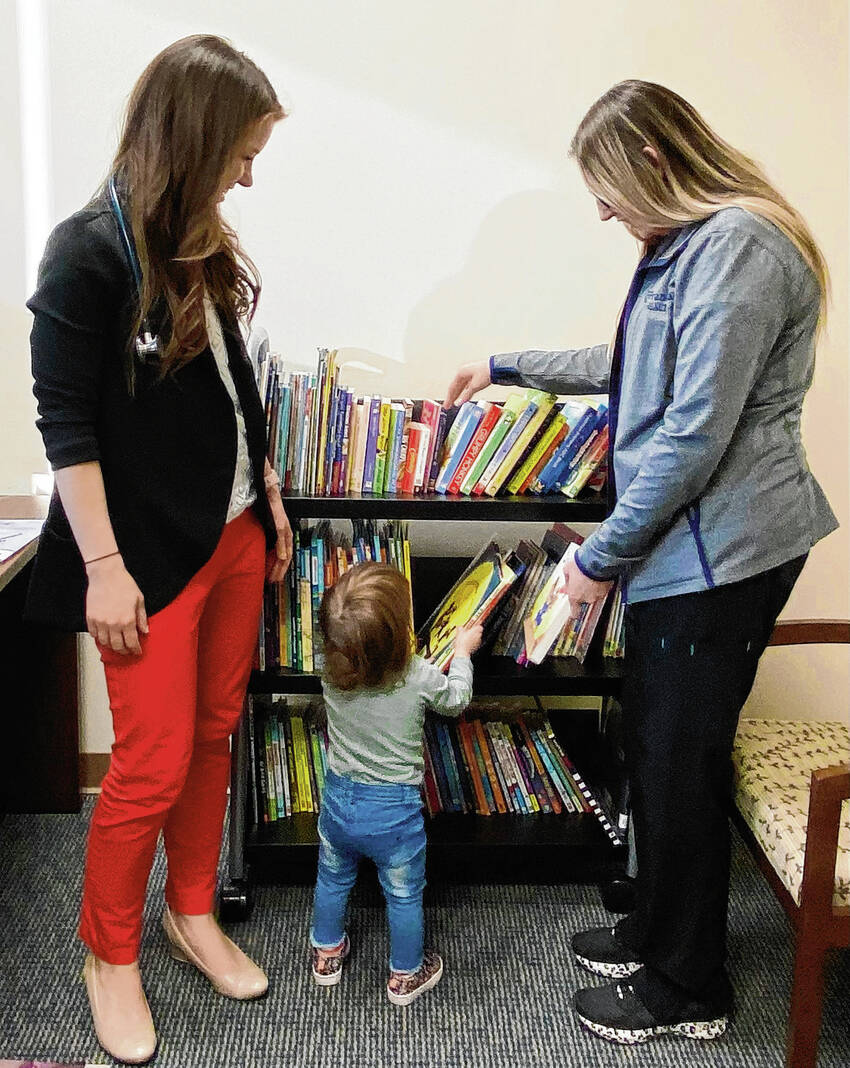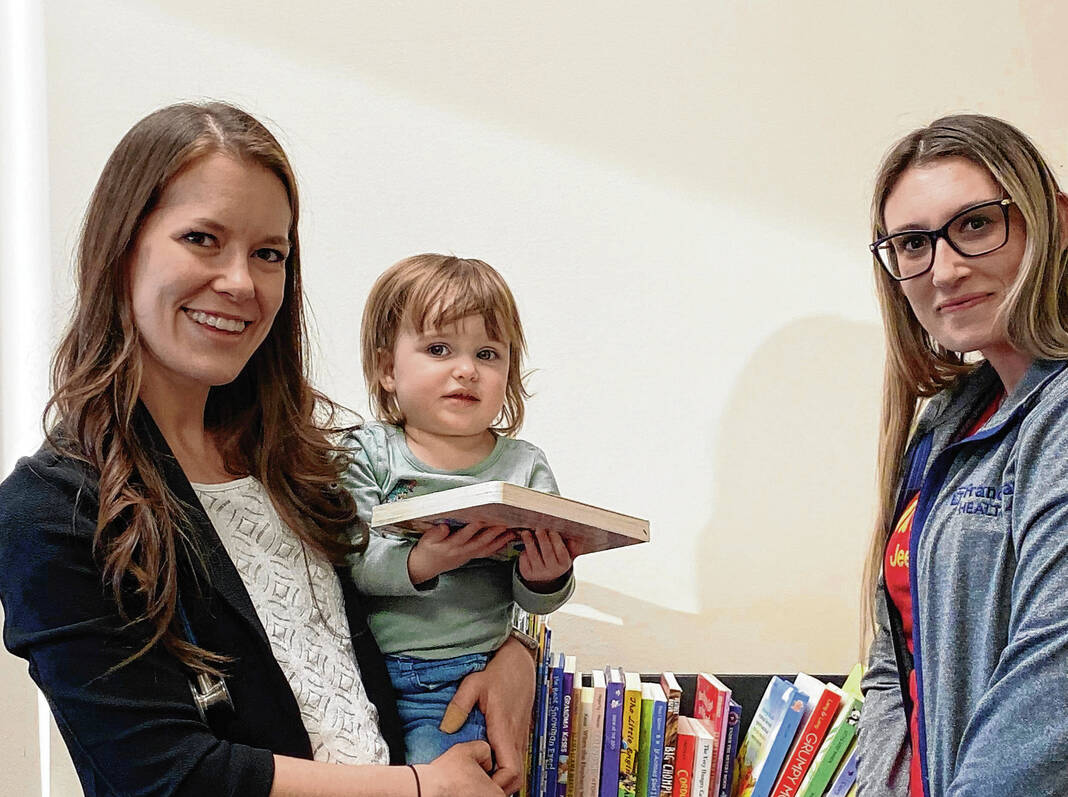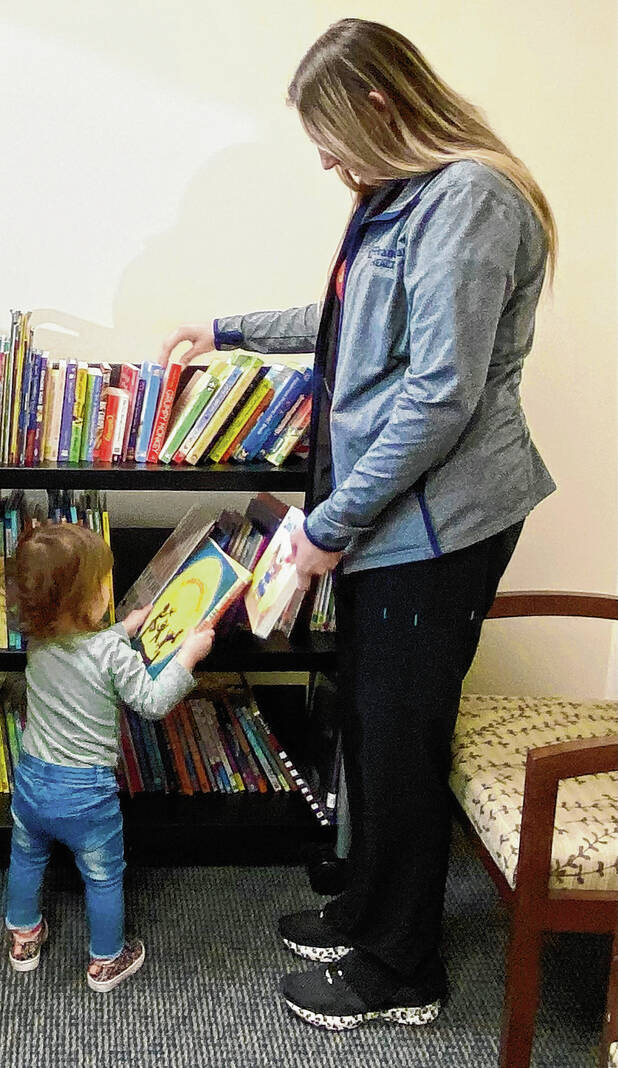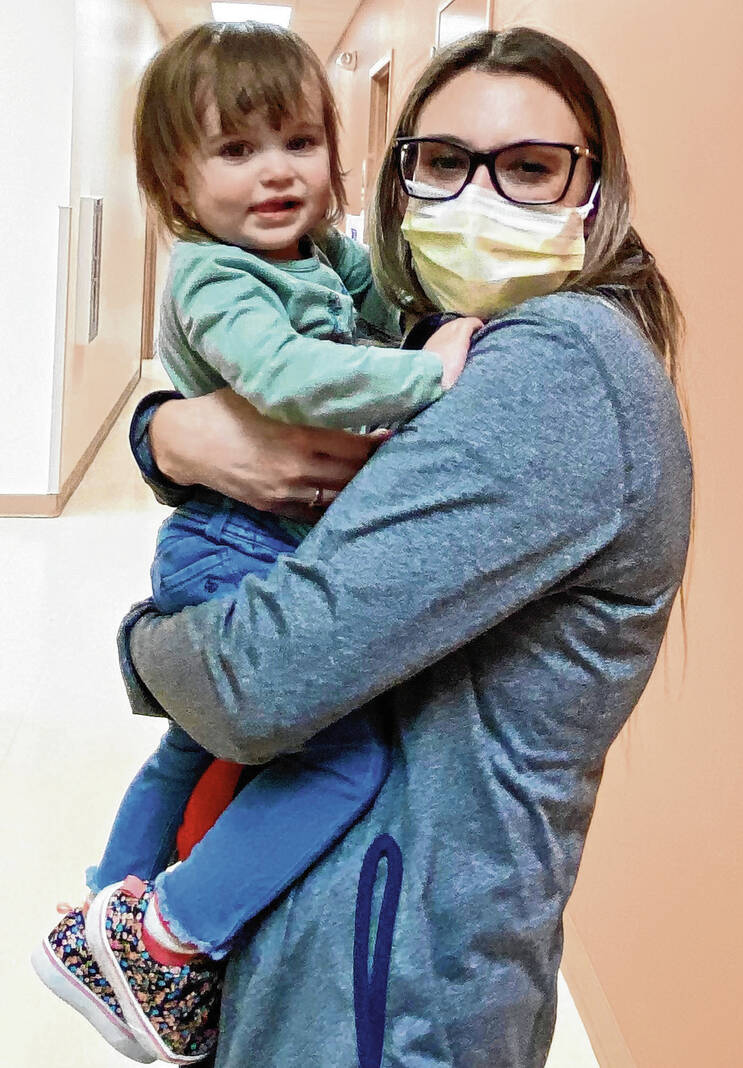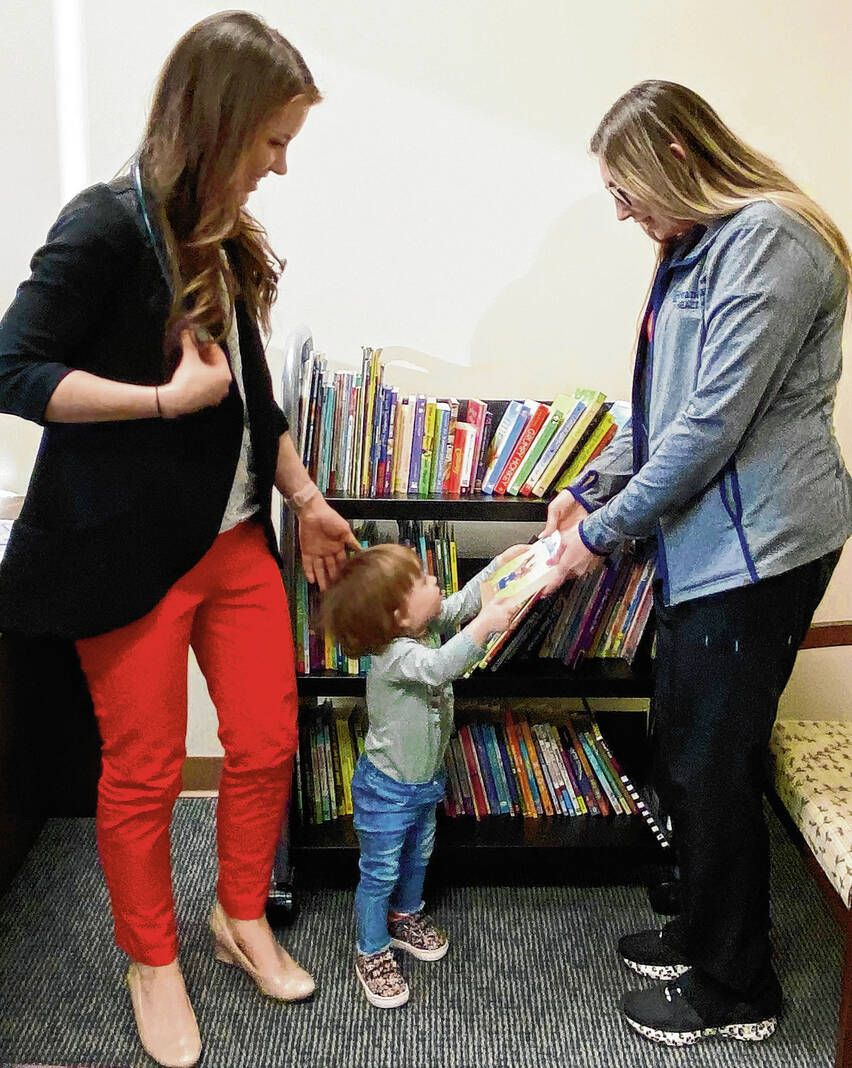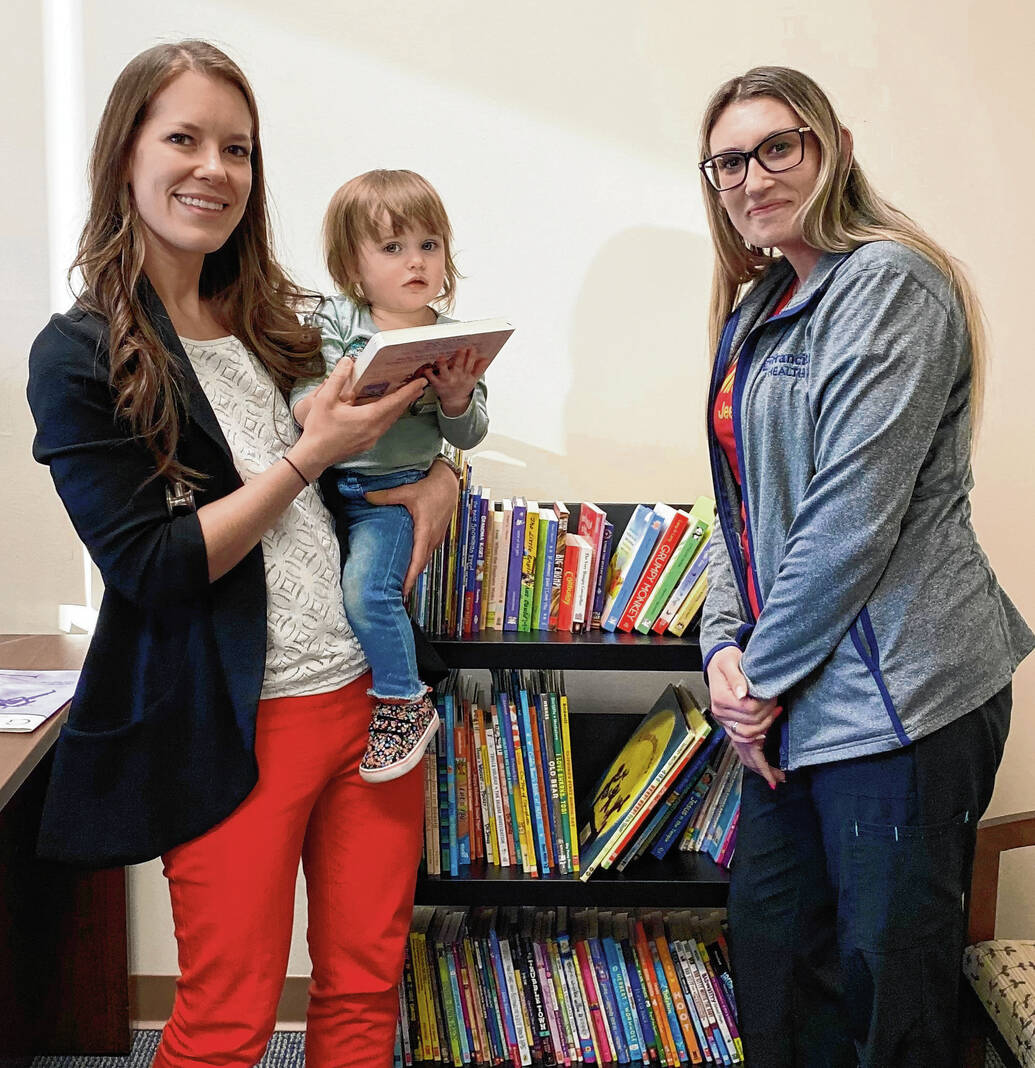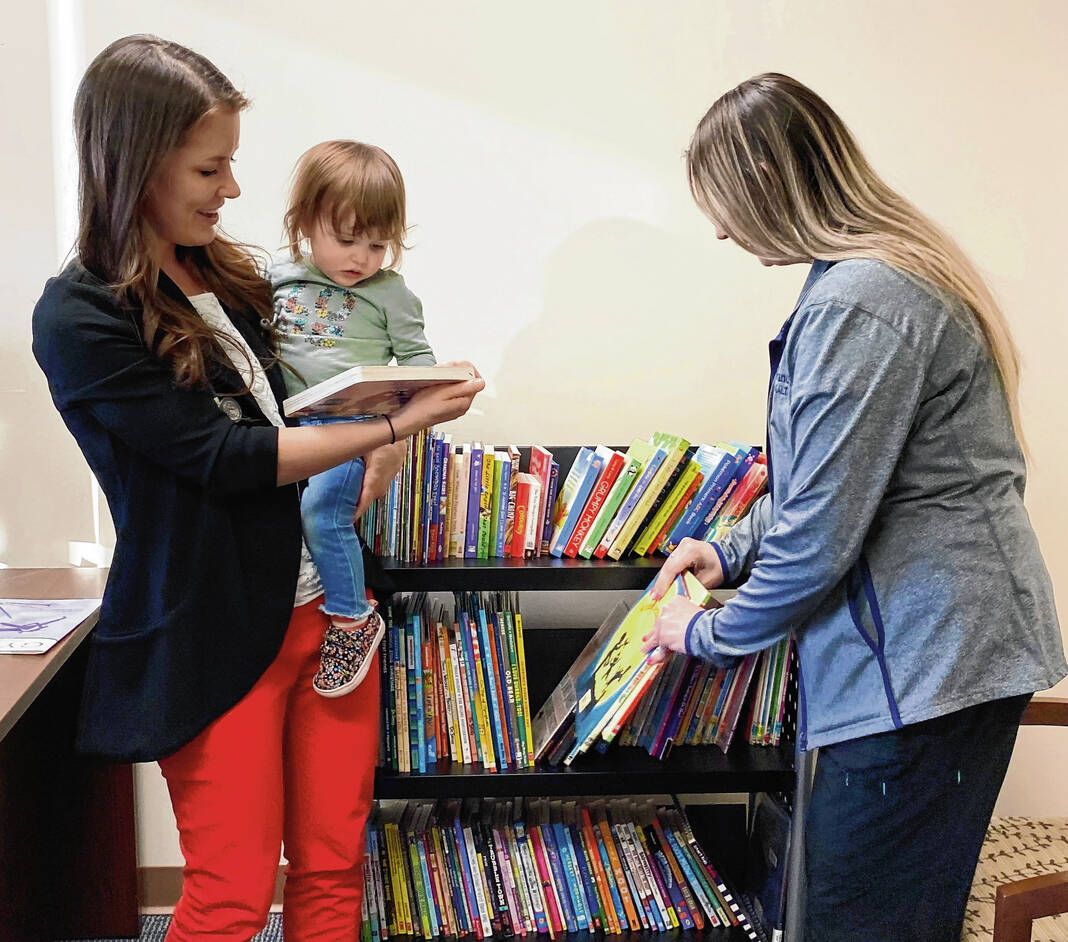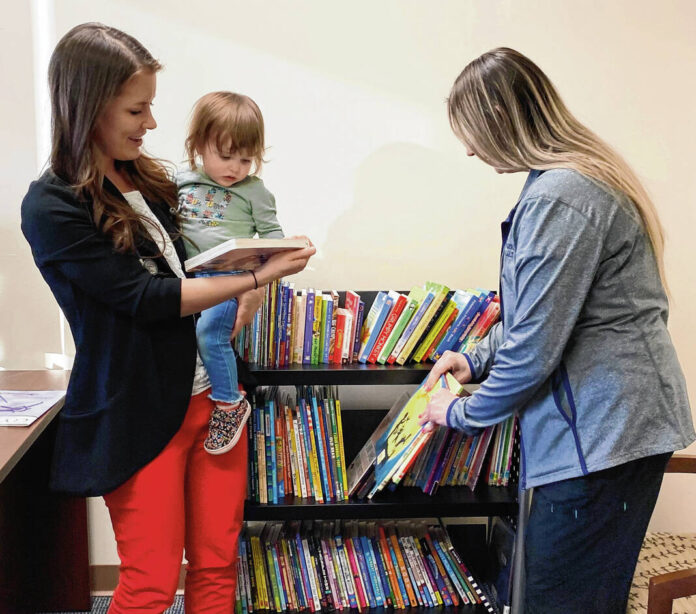
Dr. Emily Perkins, left, shows Delaney Campbell a book at her office while medical assistant Cassie Smith selects more books from a shelf. Smith helped spearhead a program in Perkins’ office at Franciscan Physician Network Southeast Family Medicine in Greenwood to distribute books to young patients who come in for a visit.
SUBMITTED PHOTO
Stories of all different kinds await young patients at Southeast Family Medicine.
On a cart in the back hallway of the Greenwood medical office, picture books are arranged on the top two shelves, where kids can browse through them and find ones that pique their interest.
Soft cloth books for infants are set next to board books for toddlers. For older children, chapter books are spread out on the bottom shelf.
With dozens of different types of books to take home, the medical staff hopes that their patients find one that gets them excited.
“I wanted to give joy to the kids, because sometimes, the parents don’t always like them getting a sticker or the sucker, but a book is something they take home, they get to keep and have for as long as they want,” said Cassie Smith, a medical assistant at the office. “Maybe they don’t get a chance to have a lot of books at home.”
The staff at Southeast Family Medicine hope to foster a healthy body as well as a healthy mind through a new effort at the office. Every young child who comes to the Franciscan Physicians Network office receives a book or two to take home with them, getting to choose from a selection of books purchased by the staff.
Led by Smith and Dr. Emily Perkins, the effort is intended to get kids excited to come to the doctor and take home something they can keep for a long time.
“It makes me tear up thinking about it. It feels great that we’re getting to these kids. You don’t know their home situations, if they can’t afford a book, if they never had a book to call their own. Or just to add to the collection of what they had,” Smith said. “The biggest thing is seeing how happy it makes them.”
The visit to the doctor’s office took a turn for the better.
Delaney Campbell had come with her mom for her annual well-child visit. Delaney, 19 months old, was set to receive her vaccinations at the visit — something her mother and the staff knew would be painful and upsetting to the toddler.
But before receiving her shot, she was given a gift: a new book to take home.
“Probably about at the age of 9 months, she could sense when she was going to get a shot. She’s tense up and become very apprehensive,” said Jennifer Robertson, Delaney’s mom who works at Southeast Family Medicine. “She could feel a shot was coming. So when Cassie came in and gave her the book, it was like she totally forgot about the shot.”
Delaney received another book before she left. The two have become prized possessions, Robertson said.
“She was just thrilled. She carried them around the whole weekend, and the week afterward — showing everybody, showing her dad, they were her prize,” she said.
Making a trip to the doctor more enjoyable is only one benefit of the book distribution program at Southeast Family Medicine. Research shows having access to books at an early age is a key aspect of a child’s development.
According to the High/Scope Perry Preschool study, roughly 85% of the brain is developed by age 3. Reading to them by that age helps build and strengthen skills; a child who is read one book a day will hear 290,000 more words by age 5 than a child who is not regularly read to, according to research by The Ohio State University.
Children who were read to frequently are more likely to count to 20 or higher than those who were not, write their own names, and read or pretend to read, according to the National Center for Education Statistics. The idea to offer books to her patients came from Perkins’ experience with her own children.
Smith had come to her to discuss purchasing stickers and other items for kids who come to the office. Perkins mentioned her children were able to take home books after getting their recent vaccines. Smith loved the idea.
“We started talking, and I told her we should do that here. Instead of stickers and a sucker, we should give out books,” she said. “(Perkins) thought it was a really good idea.”
With all of the doctors at Southeast Family Medicine on board, Smith went out in early January to area stores, libraries and thrift stores to pick up picture books and early-learning materials for a wide variety of children. She used her own money to bring back the different items, and stocked them on a cart in Perkins’ office.
“Everyone focuses on the electronics in today’s world. Anything to get a kid off an iPad or their phone, I’m all for it,” Smith said.
The effort has been a great success. Since it started in January, the staff at Southeast Family Medicine has noticed their patients have less fear and anxiety about their visits after receiving a book.
They expect the enthusiasm to grow as more patients get their books.
“Hopefully, they’re going to come back and they’ll be excited. They know they’re going to get an injection, but at the same time, they know they’ll get a book afterward,” Robertson said. “You’re giving them the gift of imagination and striking their curiosity.”
Parents, too, have been surprised.
“They’re kind of wowed. They ask, ‘Are you serious,’ and I tell them yeah, you can take that home,” Smith said. “It touches me to see how happy the kiddos are when they get their book.”
Smith and Robertson have set their sights even higher. They’ve explored the idea of starting a foundation or nonprofit organization where they could raise money to buy books to give to patients across the region.
“I think it could have a great impact on kiddos. If we can help them in this way, we want to do that,” Smith said.


